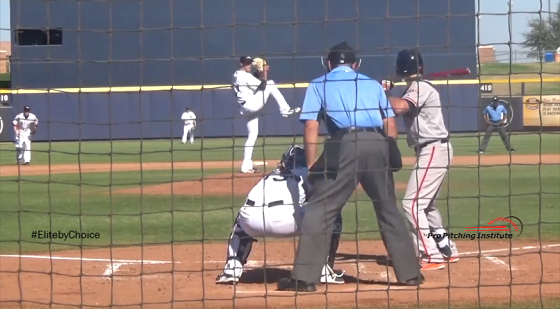Balance
It’s a known fact that your body is either in balance or moving to get itself back in balance.
When you push off the rubber, you drive down the mound, use your throwing arm for balance, and lose control of your throwing arm into your release.
There’s another, more effective, pitching model.
The Best Pitchers Rotate Down the Mound and Use their Throwing Action to Get Back in Balance
Rotating down the mound occurs as a result of you letting “your lower body” drive your motion.
An Alternate Storyline - Place a light weight on the end of a string, and slowly twirl the weight around your hand. Every time the weight completes a circle, the weight comes through the same spot and, even with a minimal hand action, produces so much energy that you’d think twice about putting your hand in the weight’s path.
- The Pitching Elements within This Storyline
- The string represents your throwing arm.
- Your forearm and hand relate to your core. - The weight coming through the same spot all the time symbolizes your release window. - The energy the weight generates relates to your throwing arm whip Rotating Down the Motion - When you end your front leg lift with an upright core, you can open your front shoulder to begin your rotation down the mound.
Your front shoulder spin whips your throwing hand through the same spot on every pitch. Duplicate your front leg lift from one pitch to the next and you can expect your throwing arm to whip your pitches into your intended target.
Where can you see this? - Watch how frequently a Big-League Pitcher at the top of the Team’s depth chart delivers their pitches into their intended target.
If you move down the mound, can’t know where any one pitch will end, then let's talk.
Skip Fast
Pro Pitching Institute
“Winning Pitch Location Strategies©” Author/Coach
E-Mail: skip@propitchinginstitute.com
Cell or Text: 856-524-3248
#ElitebyChoice
Copyright © 2020, Pro Pitching Institute.






